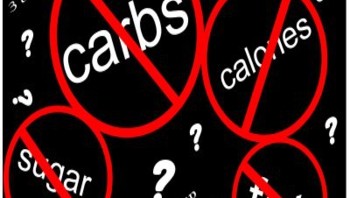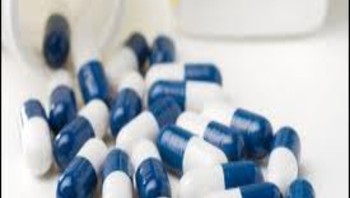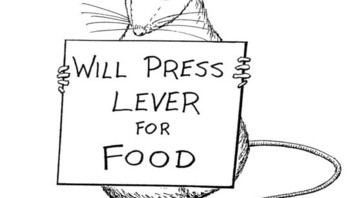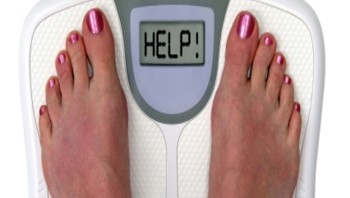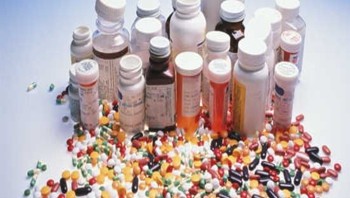How Do Diet Pills Cause Weight Loss?
To eliminate excess fats rapidly, people consume weight loss products in addition to their daily diet and exercise plans. These include diet pills, which are currently having more and more popularity in the market.
Diet pills work by affecting the body processes that cause weight gain. They promote weight loss primarily by 3 ways- increasing the energy expenditure (calories burned), decreasing the number of calories absorbed during digestion, or suppressing the appetite to decrease the amount of food eaten.
Increasing the Energy Expenditure (Calories Burned)
The calories present in food are used by the body as fuel. They are consumed to give the body the necessary energy to do work. With the process called thermogenesis, calories are burned up and converted to heat while doing work. To maintain the normal functions of the body that people don’t usually think about, like breathing, a constant supply of calories or fuels is needed.
To lose weight effectively, a person must increase the amount of calories that he or she burns up every day. Before, this increase can only be achieved by exercise. However, due to the advancement of science and technology, certain drugs are now developed to cause the body to burn more calories as it performs its normal daily functions. With the help of these drugs, people are able to lose weight even though they continue to eat the same amount of food. These drugs basically work by increasing the body’s fuel requirements, ideally to a point where the body needs more calories than the person takes in from food. When this happens, the body begins to break down its fat stores as fuel. As these fat stores are used, people lose weight.
Having said these, diet pills seem to present great advantages concerning weight loss. However, despite these advantages, there remain greater drawbacks in using these pills. One of these is increasing the rate of many body processes – possibly to a point that it already becomes dangerous. Examples are increased blood pressure and heart rate, which can lead to heart problems over time. Other side effects include nervousness and insomnia.
The diet pills developed to increase the number of calories burned contain one or more of these three ingredients: caffeine, phenylpropanolamine (PPA), and ephedrine. In the United States, PPA and ephedrine have been withdrawn from the market because they produce serious side effects, including heart attack and stroke.
Types of weight loss pills that work by increasing energy expenditure – Metabolism Stimulators , Thermogenic Fat Burners , Stimulant Free Fat Burners
Decreasing Calorie Absorption
Let’s review how the digestive system works. The food is eaten, and the starch is digested in the mouth. The other undigested food contents then travel through the esophagus to the stomach. All of the food contents are digested in the stomach. The nutrients are absorbed by the large and small intestines and they travel to the bloodstream. In this manner and form, they are used as fuel for the body. When people consume more calories than they burn, the body stores the extra nutrients as fat, which accounts for weight gain.
So to be able to achieve weight loss, the amount of caloric intake must be regulated. Before, this can only be done by lessening the amount of food eaten by the person. But now, diet drugs are developed which are able to prevent the body from absorbing some of the calories contained in food. People who take these drugs can eat the same amount of food and take in the same number of calories and still lose weight, because the drug causes their bodies to absorb and use fewer calories. The excess calories are eliminated in the stool. The problem with these diet pills, however, is that they interfere with the absorption of other drugs in the body. For this reason, it is important not to take these diet pills at the same time as other medications, and to separate them by a few hours. Since these drugs affect the digestive system, including the stomach and intestines, they may also lead to side effects like diarrhea and flatulence.
Currently, the only prescription drug on the market that works by blocking the body’s absorption of calories is Orlistat, which is sold under the brand name Xenical. Orlistat specifically decreases the absorption of fats from food consumed. It’s over the counter version is sold as Alli and there are other good weight loss pills working on the same mechanism.
Types of weight loss pills that work by Decreasing Calorie Absorption – Fat Absorption Inhibitors , Carb Blockers ,
Appetite Suppression
The brain controls our appetite as it controls our thoughts and emotions. Neurotransmitters (chemical messengers in the brain) such as norepinephrine, serotonin, and dopamine tell the brain that the stomach feels full.
To be able to control our appetite then, the number of neurotransmitters that dictate us to stop eating already must be increased. This is how some diet drugs work. They increase the levels of the said neurotransmitters, which cause a decrease in appetite, which in turn lessens the food we eat. And as we consume less amount of food, the number of calories we intake also becomes less. Drugs that increase more than one of the neurotransmitters may be more effective for weight loss than those that increase only one. Some drugs that work in this way also have the effect of increasing the number of calories burned (thermogenesis).
Dopamine, norepinephrine, and serotonin have other responsibilities in the body besides dictating hunger. For example, norepinephrine also helps control blood pressure. Drugs that affect the level of these neurotransmitters interfere with other body processes and produce negative side effects. A drug that increases norepinephrine will decrease appetite, but will also increase blood pressure. Other common side effects of drugs that increase norepinephrine are dry mouth, insomnia, and constipation. Examples of diet pills that affect these neurotransmitters are sibutramine (Meridia) and phentermine (Ionamin®). Sibutramine increases norepinephrine and Serotonin while phentermine increases norepinephrine only.
Aside from the above-mentioned neurotransmitters, there are other factors that affect one’s appetite such as proteins and hormones. Many of these have already been discovered recently but others remain yet to be discovered. The finding of these important factors are very helpful for creating new diet pills formulations in the future that hopefully won’t cause any adverse effect. The most promising protein so far is leptin, which is produced by fat stores.
Understanding how hormones work in the body and how they affect satiety (the feeling of being full) is crucial to the development of new products for weight loss. Scientists continue to study different processes in the body, even at the cellular level, that can lead to weight gain. Amid the rapid increase in obesity rate, scientists continue to identify chemicals with the potential to be turned into drugs that can be used to assist weight loss. However, people are still highly encouraged to develop diet and exercise plans to lose weight in the natural way.
Read more about Appetite Suppressants
Other Mechanisms employed by weight loss pills
– Colon cleansing for weight loss
– Meal Replacement for Weight Loss
– Multi-ingredients Weight Loss Products having more than one ingredients or mechanisms.

